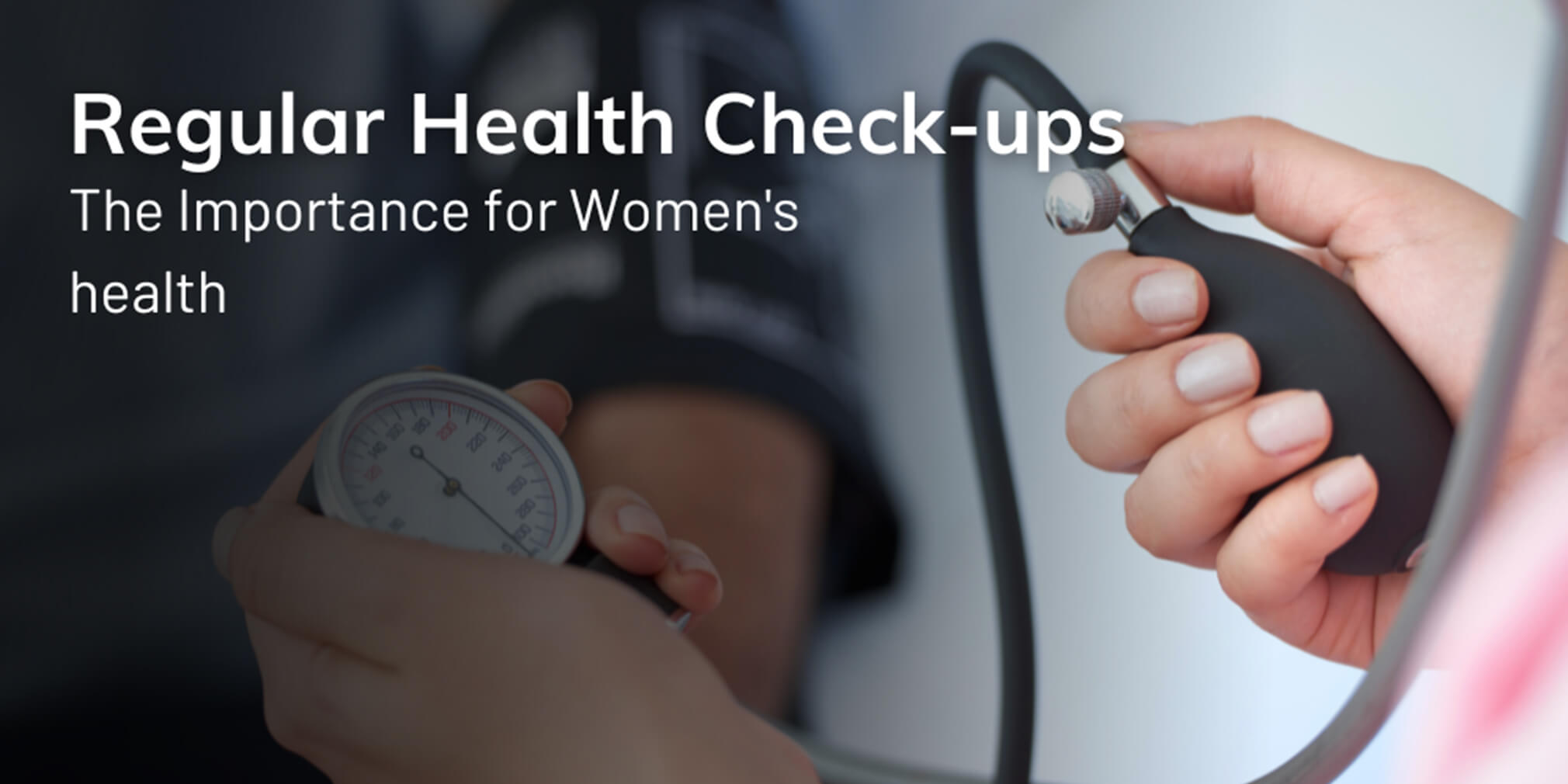
Regular Health Check-ups: the Importance for Women’s health
Why is women’s health important? They face unique difficulties due to hectic cycles in daily life. Because of this, they are often overwhelmed and face both mental & physical health issues. A quick-paced lifestyle leaves them at odds when it comes to prioritizing their general well-being and health.
The role of ladies in both families and society is indeed incredible. It is worth accolades. Taking care of their health is crucial. This can be achieved with minimal effort through regular health check-ups.
This blog post highlights the importance of regular checkups for women. We will also list the checkups that should be carried out regularly without hesitation.
Importance of regular health check-ups for women – why are they important?
The importance of women’s health can never be overlooked at any point. They can also benefit from regular health check-ups themselves. They help in diagnosing various conditions and diseases before they worsen. Moreover, ladies can also start treatments at the right time. Here are the timely benefits of regular health screening for them:
- Life-threatening diseases like cancer of the breasts, cervix, and ovaries are detected promptly.
- Treatments that start early have higher chances of recovery.
- Females can prevent infections and chronic illnesses via regular health screenings.
- Healthcare providers can suggest some changes in the diet and lifestyle so they can safeguard themselves from diabetes, hypertension, and high levels of cholesterol.
- Regular health checkups help in maintaining health and overall well-being.
- They also help control and alleviate complications and signs of any health condition.
- Closely monitoring health conditions helps ensure timely recovery and prevents such situations from recurring.
- Regular health checkups help with the early detection of illnesses. They help them reduce healthcare expenses.
Lastly, regular health checkups for them will help save their lives through timely diagnosis of cancer and other diseases, plus conditions early in the stage, and improve the chances of recovery.
The common diseases and health conditions among women
Women’s health benefits from the timely detection of diseases and other health conditions. They have distinct anatomy, different hormones, distinct cellular and bone structures, and varying roles in life. Their health issues are different.
Yet, some diseases and health conditions affect both males and females. They also pose several risks to their health. Here are some of the most common diseases and health conditions affecting females.
Cardiovascular Diseases
One of the most underdiagnosed health conditions in females, it remains one of the leading causes of fatalities as well. Signs in them will vary significantly as they will experience the following in place of chest pain:
- Fatigue.
- Nausea.
- Shortness of breath.
Breast Cancer
A majority of females are affected by this disease. Timely diagnosis via regular health checkups and mammograms can save their lives.
Osteoporosis
Women in their postmenopausal stages are at risk of developing a loss of bone density. This can result in fractures. This occurs due to hormonal changes and lower bone mass compared to that of men.
Reproductive health issues
The following conditions disturb the reproductive system:
- Polycystic Ovary Syndrome (PCOS).
- Endometriosis.
- Uterine Fibroids.
They not only impair fertility but also cause intense pain and disrupt menstrual cycles.
Diabetes
Females with PCOS are prone to type 2 diabetes. It impairs heart health and neuropathy, too.
Autoimmune diseases
Females widely experience disorders like lupus, rheumatoid arthritis, and multiple sclerosis. This occurs when the immune system erroneously targets healthy cells. This results in inflammation and organ damage.
Mental Health Disorders
Mental health issues like anxiety and depression are common in females. Hormonal changes during pregnancy, menstruation, and menopause affect their mental health.
Essential screenings for women’s health
Screening for Breast Cancer
One of the most common cancers affecting females around the world. Regular mammograms are essential for early breast cancer detection. They should start discussing their screening schedule with their physician by the age of 40 or earlier if they have a family history of breast cancer.
Cervical Cancer Screening
Experts from the American College of Obstetricians and Gynecologists recommend that females start getting Pap smears at the age of 21. This screening helps detect precancerous changes in the cervical cells. It further allows for timely intervention.
Screening for Diabetes
Females are at risk for developing diabetes due to many factors. Obesity, sedentary lifestyle, and hormonal changes contribute to it. Routine blood tests can help monitor blood sugar levels and detect prediabetes/diabetes early on.
Testing for STIs
Regular testing for STIs is essential for sexually active females to prevent complications associated with untreated infections. A lot of STIs can be asymptomatic but can create severe reproductive issues if not treated in time.
The importance of Regular Health Checkups
Regular checkups take into consideration women’s priority healthcare. This means that they can help them detect any health anomalies early on, thereby preventing the onset of severe health conditions.
Preventive Care
A key benefit of regular health checkups is preventive care. Early detection of potential health issues allows for timely intervention. It can include screenings, vaccinations, and lifestyle changes. It helps promote a healthy diet and encourages regular exercise.
Checking Reproductive Health
Reproductive health is a key aspect of a woman’s overall well-being. Regular gynecological visits help with the following:
- STI Testing: Regular screenings for sexually transmitted infections help sexually active females maintain reproductive health.
- Hormonal Assessments: Monitoring hormonal changes can help manage symptoms relevant to menopause, menstruation, or pregnancy.
- Pregnancy check-ups: Individuals planning to conceive or who are already pregnant should schedule regular visits. This ensures both the maternal and fetal health.
Addressing Mental Health
Females often juggle multiple responsibilities simultaneously. It leads to stress and mental health challenges. Regular checkups provide an opportunity to discuss mental well-being with healthcare providers. Mental health screenings help identify conditions like anxiety or depression on time.
Giving Personalized Health Tips
One reason women’s health centers were created is personalized health advice. Healthcare providers can offer customized health advice tailored to individual needs. It includes guidance on Nutrition, stress management techniques, and lifestyle adjustments to promote overall well-being.
Over to You
Regular health check-ups are crucial for females. They bear the brunt of life and society, and they deserve top-notch medical treatment. They should consult their physician immediately if they are unsure about their health.
